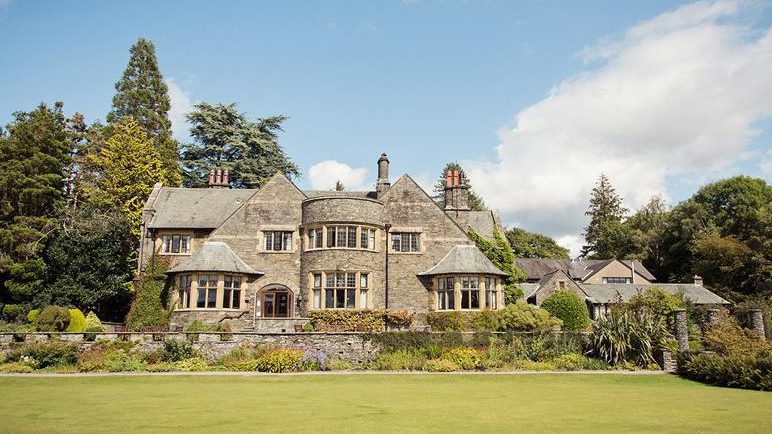Previously on this blog I have preferred to review individual investments. But there is currently a plethora of firms offering investment in a myriad of hotel rooms, and as it’s impractical to review each hotel room individually, I decided to write a general guide.
This article is about investments which work as follows:
- A larger property is divided up into individual units, and the units are sold to investors. For example, a hotel is divided into hotel rooms, and the hotel rooms sold to investors. Or a car park may be divided into parking spaces and the spaces sold to investors, or a self-storage facility may sell off its storage pods. The promoter of the scheme still owns the hotel, the car park or the storage facility.
- Unlike a buy-to-let flat or similar property investment, the investor does not manage the investment and is not responsible for generating the return. This responsibility remains with, or is “leased back” to, the promoter of the scheme to which the investors gave their money.
- Unlike a buy-to-let flat, the investor does not receive a variable rent, but is promised a fixed return by the scheme promoter. Promised returns of 8% – 12% are common, although it can be more or less.
(In some investments it may be optional to “lease back” the investment for a fixed return. But in practice, the vast majority of those who buy the investment will. It is after all unlikely that they will do better by managing the investment themselves than the 8 – 12% the promoter is offering.)
For brevity I have referred to “hotel rooms” for the rest of the article, but if you are considering investing in, say, a parking space offering a fixed return of 8% per annum, you can simply insert “parking space” for “hotel room”. Same goes for any investment which matches the bullet-points description above.
These investments are investments in a company, not in a property
If you buy a flat from a seller and the seller walks away with their money and no further involvement, you’re investing in a flat.
If you buy a room in the Great Northern Hotel from Acme Investments Ltd on the promise of a “fixed return” or “guaranteed return” of 8%, you are no longer investing in a property. You are investing in Acme Investments Ltd, as your return depends on their ability to pay your 8%.

How much money Acme makes from the guests in the hotel room is only of tangential interest to you. It doesn’t matter if the hotel room makes more than 8% – you won’t get it. It doesn’t matter if it makes less than 8% – they should be obliged to still pay you 8%, if they’ve got the money from their other hotel rooms or other sources.
In addition, with these investments, the promoter of the scheme also frequently offers to buy the investment back from you at a fixed future date, e.g. 5 years or 10 years. (See “Buy back options” below.) They often offer to do so at the original price or a multiple of it (e.g. 125% of what you paid). This makes your returns even more dependent on the financial strength of Acme Investments, and whether they will have enough money to honour their “buy back” option in 5 or 10 years’ time.
The return of your investment depends on the financial strength of Acme Investments Ltd, and before investing into Acme Investments you should do full due diligence on the company (see “Due Diligence and what it means” below).
How much is a hotel room worth?
In theory, of course, if Acme Investments goes bust you still have the hotel room.
However, the value of a hotel room in a hotel I don’t own depends entirely on what I can get from putting guests in it – and what if the hotel doesn’t want to let my guests in? They own the front door.
When buying a property, either for your own use or as an investment, you don’t simply pay what the estate agent asks for it. The estate agent works for the seller. You hire a valuer who works for you to check that the house is worth what they are asking. Similarly, if someone offers you a hotel room for a fixed price, you shouldn’t proceed without hiring a valuer who works for you, instead of the scheme who is selling it to you, to check that the price is reasonable.

There is typically very little secondary market for investments in individual hotel rooms independent of the promoter of the scheme. Why would anyone buy a second-hand hotel room from an investor with no guarantee of returns, when they could get one directly from the investor’s scheme offering a fixed return of 8-12%?
Buy back options
Because there’s a very limited secondary market for hotel room investments, the promoter has to come up with a way for investors to exit their investment. (If there was no way to exit the investment, the investor’s payments of 8-12% per year would just be their own money being paid back to them.)
Typically these investments offer a “buy back” option where after a fixed period (e.g. 5 or 10 years), the investor can sell the investment back to the promoter, in exchange for either their original capital back or a multiple of it (e.g. 125%).
Like the 8-12% yearly returns, the “buy back” option depends on the financial strength of the company offering the investment scheme.

The small print of the investment terms may say that the buy back option is at the promoter’s discretion. Even if it is not discretionary, the buy back option is of little use if, when the five year or ten year period expires, the promoter says they do not have the funds to honour it.
Due diligence
The term “due diligence” is much abused in the investment business. The following are not, in isolation, due diligence:
- Reading investment literature provided by the scheme
- Talking to the scheme’s management
- Looking at the property they own
Due diligence would at a minimum consist of the following:
- Checking the debt cover ratio (Acme Investments’ profit, divided by the amount it needs each year to pay its debts) and other key financial indicators
- Reviewing its accounts (not just published annual accounts, but the monthly management accounts as well)
- Reviewing its business plan and financial projections, and determining whether its modelling makes sense and the assumptions behind them are reasonable
- Ensuring that the figures are consistent and have been audited by a reputable firm of accountants
All of the above should be second nature to anyone considering investment into an individual company.
The average yield on regional hotel properties is currently 4.25% per year according to Savills. Investors who are being offered 8-12% a year from a hotel investment need to ask what makes their hotel so much more lucrative than other hotels, and whether this is sustainable for however many years their money will be locked up before they can exit (e.g. via a buy back option).
These are investments into early-stage, micro-cap companies
The smallest company on the UK’s smaller companies index (FTSE AIM) is £186 million in size (market cap) at the time of writing (Amerisur Resources). The companies that offer hotel room investments are typically much much smaller than this, and many launched less than five years ago.
As these companies are unlisted (they are privately owned and not traded on an exchange like FTSE AIM), their size can be found by looking them up on endole.co.uk (other Companies House aggregators are available) and looking for the “Net Assets” figure.
So we are not talking about investment into smaller companies. Fevertree Drinks (market cap £4 billion) is a small company. Amerisur (£186 million) is a very small company. A company with £2 million in net assets offering investment in hotel rooms is a really-really-really-tiny microcap startup company.

Investment into any individual company, no matter how big, is extra-high-risk with the potential to lose up to 100% of your money (see Carillion, BHS, Enron, etc). Other things equal, the risk is much higher for smaller companies than it is for FTSE-100 listed “blue chips”.
At this point some might say “but it’s an investment in a hotel room not a company”. If so, go back and read “These investments are investments in a company, not in a property” again. If necessary, read it again, go to bed and then resume reading this article tomorrow. If a company offers you a fixed return of 8-12% per annum then you are investing in the company and it is the company’s finances that matter. The hotel room is irrelevant unless the company stops paying the 8-12% per annum, which you presumably hope it won’t.
Investors who are not experienced investors in micro-cap startups should ask what it is about these particular startups that they find attractive. They should bear in mind that the Government offers tax incentives for investing into startup companies, such as Venture Capital Trusts or Enterprise Investment Schemes. These tax incentives are not available to hotel room investments.
They should also ask whether a fixed return of 8-12% per annum is a decent return for investing in a micro-cap startup company.
Regulatory status
All these investments are unregulated in the UK. The Financial Conduct Authority takes little interest in these schemes. If an investment goes wrong the investor will not be able to seek redress from the Financial Ombudsman Service or the Financial Services Compensation Scheme, unless an FCA-authorised adviser advised them to invest.
For contrast, in the United States of America, investment schemes such as these (where an investment is sub-divided and the parts sold to individual investors, and the investors pass responsibility for generating a yield back to the promoter of the scheme), are still required to register with the Securities Exchange Commission.
The idea that the investors are each managing their own investments (like buy-to-let investors) and therefore the organiser does not need to apply for SEC registration was demolished back in 1946, in the case of SEC v. W J Howey Co. The Howey case involved orange groves which were subdivided and the parts sold off to investors. The investors’ plots were than “leased back” to the Howey company who were responsible for generating a return for investors; the Howey company advertised potential returns of 10% per annum.
The Howey scheme was identical in structure to the hotel room investments being offered today, only with orange groves in place of hotels.
The Howey company claimed that their investment wasn’t subject to regulation as the investors were investing in individual orange grove plots. The Supreme Court ruled that the scheme was in reality a security and required SEC registration. The “Howey test” is still applied today and works on the lines of “if it looks like a duck, and quacks like a duck…”
The Howey test is not applied in the United Kingdom. In the US, the Securities Act requires that any investment security must be registered with the SEC, unless it qualifies for specific exemptions. The UK’s Financial Services and Markets Act is more specific and only requires that collective investments are registered with the FCA.
This allows a much greater variety of unregulated investments to be run in the UK compared with the US. Hence the proliferation of hotel room and similar investments, which would not be allowed in the US without SEC registration as they would fail the Howey test. Investors should bear in mind that the reason these hotel room investments exist is that the UK’s looser securities laws allow such investments to be promoted to the public without FCA registration.
Should I invest in a hotel room (or airport parking space, or care home room, or any other individual unit in a wider property offering a fixed rate of return)?
This blog does not give financial advice. The following are statements of publicly available facts or widely accepted investment principles, not a personalised recommendation. Investors should consult a regulated independent financial adviser if they are in any doubt.
Unregulated investments of this nature are only suitable for sophisticated and/or high net worth investors who have a substantial existing portfolio and are prepared to risk 100% loss of their money.
Any investment offering returns of 8-12% per annum or more should be considered very high risk. As an individual security with a risk of total and permanent loss, investment in hotel rooms, parking spaces, care home rooms, student accommodation rooms, and similar investments is higher risk than a mainstream stockmarket fund.
Before investing investors should ask themselves:
- How would I feel if the promoter of the scheme ran out of money to pay fixed returns or buy my investment back, I was unable to generate any yield for my investments, there was no secondary market and I lost up to 100% of my money?
- Do I have a sufficiently large and well-diversified portfolio that the loss of 100% of my investment would not damage me financially?
If you are looking for a “guaranteed” or “assured” investment, you should not invest in unregulated investments with a risk of 100% capital loss.

A cracking post!! As for “regulatory status” The FCA “should” take an interest IF these unregulated investments were actually Collectives in disguise – such as Capital Alternatives where the FCA won the case, showing they were operating as a collective which is an authorised activity http://www.bailii.org/ew/cases/EWCA/Civ/2015/284.html
There are a number of scams operating in the mistaken belief they are not collectives as defined by FSMA 2000 s.235 but can be shown to be collectives using the argument by Lord Vos and consequently operating unlawfully. The issue is the FCA do not put these people away in anywhere near enough numbers to present an effective deterrent to scammers! The risk/reward metric is still favourable to the scammer! So they continue and flourish. Only when the FCA get a grip will it be a deterrent to the scammer and then will it diminish – when the risk/reward becomes unpalatable!
This article was amended on 19 July 2018 to add the paragraph about the Savills figures.
Great Article – is there anyway for us to share this article?
Glad you found it useful. Feel free to share or redistribute it as you wish providing it includes a link to the source.
There’s social media share buttons in the usual place.
Very Good.I was looking to invest and read an advertisement which looked tempting to an inexperienced investor like myself,student accomodation,or buy an Hotel room in London for a project that hasn`t been built yet,reading about the amenities all in very attractive colourful brochures..was glad I read this article..I thinkI`ll look for a small house or land. Thankyou.Great help..
Thankyou so much…I have been very tempted by both hotel room investments and student pods, but after reading this I think I will need to think again !!!
Thanks, very informative article to educate people about such scam schemes. I am one who suffered in such scheme, care home rooms. I advise all of you not to fall into such shabby schemes. Hotel rooms, student accomodations, care homes all fall in this category.
Love your blog, thanks